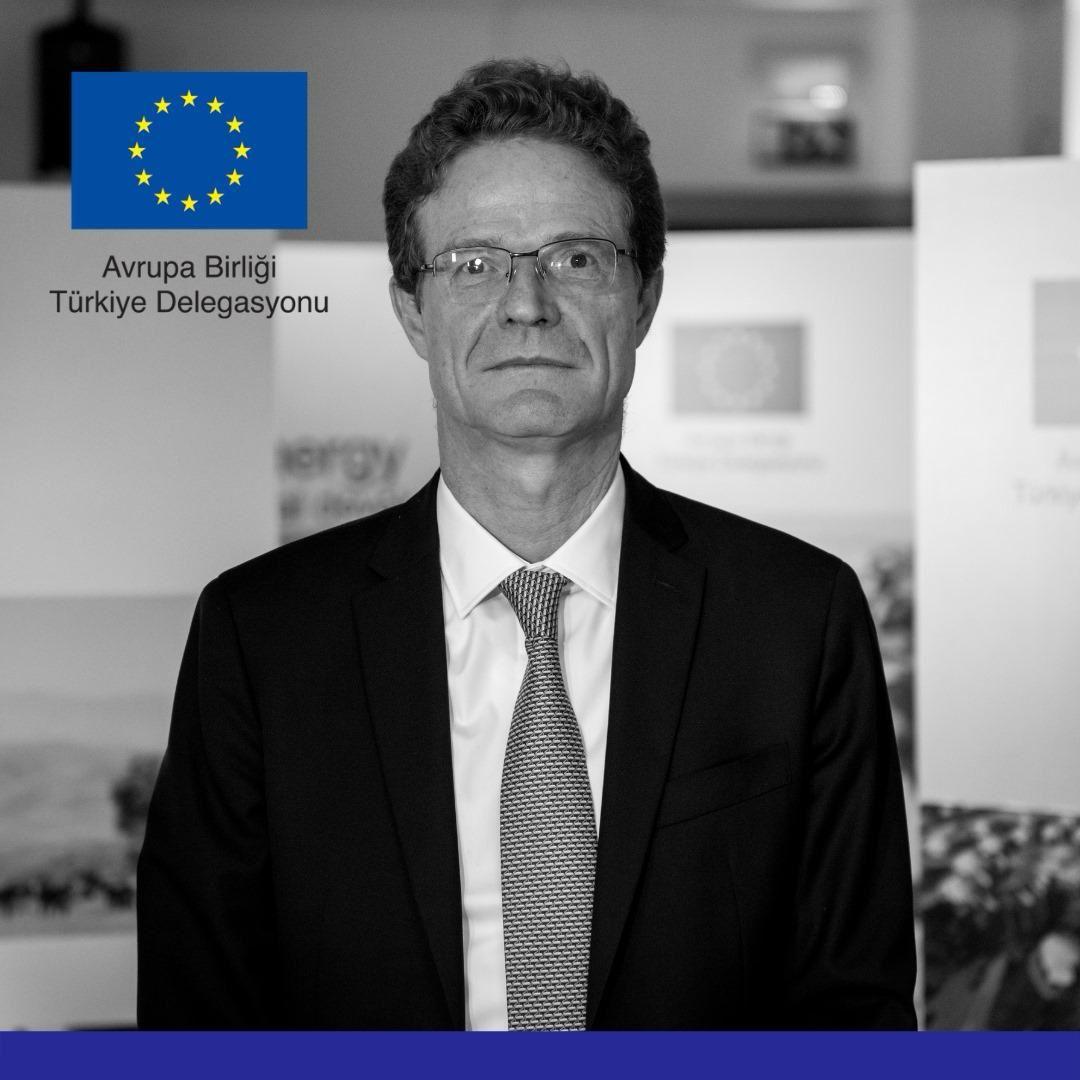Head of the EU Delegation to Türkiye Ambassador Meyer-Landrut: There is still much work to be done, we will continue to work together

The earthquakes that caused thousands of people to lose their lives in Turkey in February 2023 was among the worst I have ever witnessed. I visited all the cities in the earthquake zone in the last year, talked to authorities and local people; tried to share their immense pain. Memories of that tragic night resurface, vividly and painfully every time I visit the region. Let me express once again my deepest condolences to the Turkish people for the devastating loss of life brought by the earthquakes almost a year ago. Only last week I was in Hatay and Kahramanmaraş, one year after the catastrophe. One cannot turn a blind eye to the immense pain inflicted to the victims and the survivors.
Let me go back to the first hours after these devastating earthquakes struck. Only in a few minutes, cities and communities were turned into rubble and dust. When the sun rose again that morning, it was only to bear witness to the people of Türkiye’s shock and grief. In the wake of such tragedy, tens of thousands sprang to action to rescue and save those who were still alive under the rubbles; to heal and give shelter to those who lost everything.
Thousands volunteered, working tirelessly in the dust and in the cold, saving hundreds of lives. The first responders performed miracles, in the midst of tragedy. They inspired hope where there is so much pain. This is a story of catastrophic loss. And it is a story of heroic solidarity among the people of Türkiye and their friends around the world, including the European Union and its Member States.
Following the activation of the EU Civil Protection Mechanism, European rescue teams arrived in Türkiye, just as a second earthquake caused even more death. 21 Member States sent search and rescue teams on the ground helping to save lives in the very crucial first 72 hours. 1,652 European rescuers and 111 search dogs helped the local heroes and searched the rubble for over ten days. Additional assistance has been provided bilaterally. The EU and its Member States also sent medical teams, shelters, medical equipment. Others have installed field hospitals. At Gaziantep airport, rescue and medical teams from all over the world gathered. We owe them an overwhelming and eternal gratitude.
After the first hours and days as our immediate assistance was mobilised, we made a promise to the Turkish people: that our solidarity will continue to be as strong as it was in the first hours after the earthquakes. In this spirit, the European Commission organised an international Donors' Conference in Brussels, on 20 March.
We promised to contribute and honour the memory of the lives lost, the heroism of the first responders and most importantly to build together a better future for the survivors. And we are honouring that promise.
The task is immense and immensely complex. While a lot has been done over the last year, the path to reconstruction and recovery will be long and demanding as the challenges are manifold.
From guaranteeing a home to all those who lost everything that cold night of February to reviving the economy of this devastated region, we have been working relentlessly and closely with the Turkish authorities as well as with other private and public donors to help the region and its population in the most effective manner.
We have programmed our assistance in close consultation with Türkiye, in particular to identify priorities and design proposals to address the earthquake-related challenges, be it in the field of municipal infrastructures, socio-economic support, health or education.
The Commission mobilised close to €420 million from different budget lines for action in the areas of health and protection of vulnerable people (notably women and children), education, socio-economic support, heritage preservation and the rehabilitation of municipal infrastructure.
We are also focusing our financial assistance to support the recovery of the agriculture sector, which is of vital importance for this region.
This support is currently being implemented.
Under the European Solidarity Fund, €400 million euros will be used for reconstruction of critical infrastructure in the areas of health, education, water and wastewater. The Turkish authorities also intend to use the assistance from the Fund for the provision of temporary accommodation to meet the needs of the population, as well as to protect cultural heritage, in particular in Antakya.
The European Investment Bank (EIB) has mobilised a €400 million loan supporting municipalities for the rehabilitation, construction and extension of drinking water, sewerage and stormwater networks, as well as wastewater treatment plants.
We put a lot of emphasis on municipal and especially water infrastructures as we believe this is not only an issue which should be addressed as a priority to alleviate the population’s struggles by providing this basic need, but also because the EU had been implementing many similar projects in the region well prior to the earthquakes.
For example, in Hatay, the EU funded a new water transmission main line. In Kırıkhan, we contributed to the construction of Drinking Water Networks. In Elbistan, Kahramanmaraş the EU funded a Waste Water Treatment Plant, which was completed a year ago.
We are now assessing with our own local partners what needs to be done to rehabilitate these critical infrastructures.
A lot of work still lies ahead of us. In the coming months and years, we will continue to work together.
We will make sure that our financial assistance has the strongest impact on the ground – in full transparency and accountability. The people of Türkiye are not alone. We deeply care, and we are here to help.
Credits Ekonomim.com
